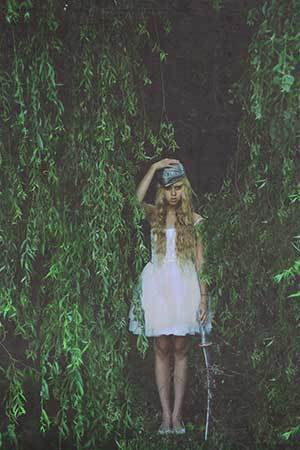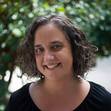The Crossing of the First Threshold: Confronting the Guardians
We’ve decided to answer the call to our unschooling adventure. With our children by our side to guide us, we are publicly declaring our choice to step away from the conventional education system—we certainly don’t need to shout it from the rooftops, but people will eventually notice that our children aren’t going to school. 
We’re moving into the uncharted world of unschooling.
Yet this passage is not necessarily smooth for the hero. In many myths, as the hero embarks they encounter threshold guardians, custodians that physically and/or metaphorically stand at the entrance to this new world. These guardians may be:
A representative of the unknown world, testing the hero’s worthiness to enter;
A representative of the ordinary world, trying to stop the hero from leaving and entering this new realm;
A representation of the hero’s uncertainty and fears that they must conquer to forge ahead.
As I began my unschooling journey more than a dozen years ago, I didn’t encounter any unschoolers trying to challenge or deter me from getting started. I didn’t know anyone “in real life” who was homeschooling, let alone unschooling, so my contact with the unschooling world was all online. I discreetly joined them—back then that meant mostly online forums—and began reading about their unschooling lives and experiences. Incredible glimpses into the possibilities. They were welcoming and encouraging.
Nowadays there are many more options online, from websites and blogs, to email lists, to Facebook groups. As technology develops, our ability to connect with like-minded people around the world improves. Keep in mind though, as you seek out communities that mesh with your personality and learning style, you also want to continue to challenge your more conventional ideas about learning: unravelling and understanding unschooling will take effort. The journey will be uncomfortable in places.
Permission to homeschool
Most countries around the world have compulsory education laws of some sort, and these more official guardians are tasked with ensuring you enter the world of homeschooling legally, with your Is dotted and your Ts crossed.
Note that I use the term homeschooling. That’s the typical term used by governmental education ministries to describe students who don’t attend school. (Unschooling is just a particular type of homeschooling, so there’s little need to get that specific—in fact, with the misconceptions about unschooling swirling around, using that term may hurt more than it helps.)
So research your state/province/region’s homeschooling policies and determine what steps you need to take to legally homeschool your children. If the policies are fuzzy, or if there are reporting requirements you are unsure about, search out an in-person or online local homeschooling and/or unschooling group. I imagine they’ll happily share how the policies play out in their lives.
This seems simple enough, but still, this step can definitely feel intimidating. We understand unschooling well enough that we’ve chosen to start down the path, but at this point our understanding is mostly theoretical—it isn’t yet supported by our own experiences. The act of signing a form on the dotted line makes it feel very official. It reminds us that we’re venturing out on our own, choosing to actively take responsibility for our children’s education.
And then we remember: that’s the point.
Clink. The guardian retreats.
Fears to conquer
The usual person is more than content, he is even proud, to remain within the indicated bounds, and popular belief gives him every reason to fear so much as the first step into the unexplored. (Joseph Campbell, The Hero with a Thousand Faces, p. 64)
The uncertainty that swirled alongside my excitement as I took those first steps beyond the conventional bounds of education wasn’t just inside my head: it was voiced back to me by well-meaning family and friends. That confidence to stay unquestioningly within convention that Campbell describes just nails the reactions we often get from family and friends—and that we see online in the comments section of just about every mainstream story about unschooling.
Fear.
Fear of what lies off the well-lit path.
The folk mythologies populate with deceitful and dangerous presences every desert place outside the normal traffic of the village. (p. 64)
In a frightening twist, vocal guardians of convention threaten us, not with mysterious monsters lurking in the dark world of unschooling, but with dire predictions that we will be creating monsters of our own children. They insist that if we take our children on this journey, they will become uneducated, unsocialized, out-of-control adults—failures to be cast out of the village, forever shunned. Our guides will become our monsters. Did I mention fear?
 Be Your Own Knight in Shining Armour, Lissy Elle
Be Your Own Knight in Shining Armour, Lissy ElleThese custodians of the established bounds of society deeply believe they are acting to protect us, and our children. They are often people in our lives who care and feel a responsibility toward us. (And sometimes they’re random people who feel the need to express their opinion about everything. They’re easier to discount.)
We can argue with the guardians in our lives, caught in a vicious circle where they feel we aren’t accepting reality and we insist they aren’t seeing the real reality. But that’s not likely to move the situation forward. Instead, for me, it helped to remind myself that I had done more research into learning and unschooling than they had. I could both understand that their fear arose from their perceived risk in leaving the safety of the village and understand why it felt less risky to me: I had a good idea of where this journey had taken other families that had gone before. And I had some initial trust that it could work that way for my family as well.
We also don’t need to make this a line in the sand. And it really shouldn’t be: for all the wonderful things we anticipate to come from this journey, most have yet to materialize. “This looks like a good fit for us right now. We’re going to try it and see how it goes.”
The adventure is always and everywhere a passage beyond the veil of the known into the unknown; the powers that watch at the boundary are dangerous; to deal with them is risky; yet for anyone with competence and courage the danger fades. (p. 67-68)
Finally, we realize we don’t need to convince anyone to “let us” embark on our journey: we are free to go. When we release that need for “permission” and trust ourselves, we are free. The power the guardians hold over us dissolves. The danger we feel fades.
We discover that the path beyond the village isn’t pitch black.
Flickering candlelight beckons us across the threshold.
Your journey
If you’re inclined to share, I’d love to hear about your journey in the comments! Here are a few questions about the “first threshold” stage to get you started:
1. As you started out, did it feel like you were crossing into an unknown world?
2. Was it—is it—challenging to meet your legal homeschooling requirements?
3. Did you find yourself going round and round with an extended family member or friend?
4. Did you take the position that you were going to try unschooling out and see how it goes?
The road so far …
Departure phase of the journey
Call to adventure: We discover unschooling and excitedly imagine the possibilities.
Refusal of the call: The many implications of choosing unschooling hit. Do we commit?
Supernatural aid: Our children guide us on our unschooling journey



